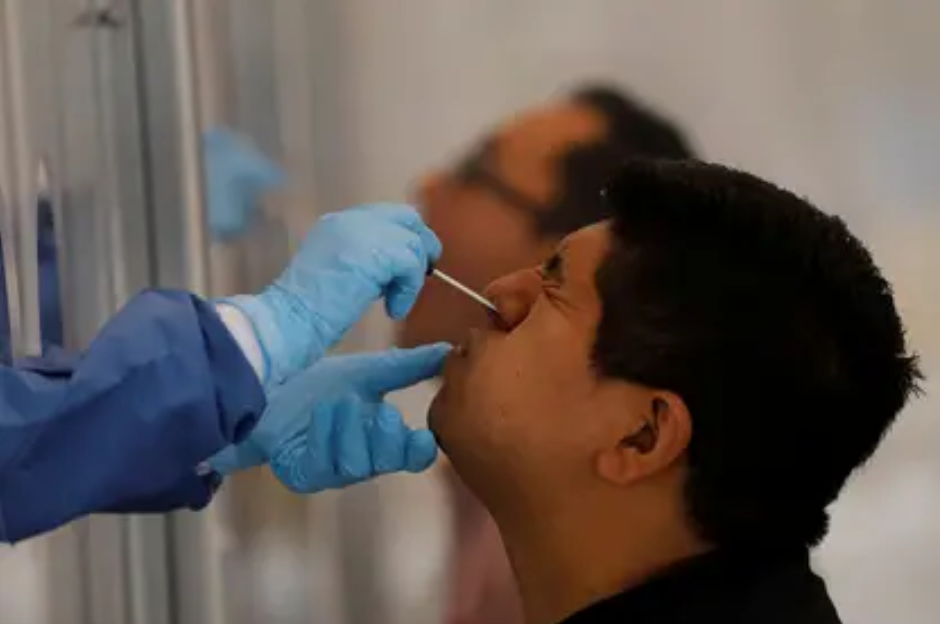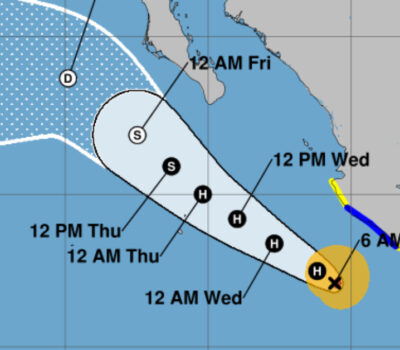A person infected with SARS-COV-2 but without symptoms can infect up to 400 individuals, as revealed by a study by the Autonomous University of Querétaro (UAQ).
“An individual can infect, in a month, 256 people with social distancing practices, and the number rises to 406 when the individual goes out to buy food or for having some essential activity”, this was revealed by Margarita Teresa de Jesús García Gasca, rector of the UAQ.
It should be considered that there is no evidence that a person remains contagious for a month, recent studies place the period of contagion at 7-11 days.
The research, which was carried out from April 1 to May 11, studied the viral load of 3,300 participants, all of them, apparently healthy, of whom 270 came out reactive; that is, they are carriers, but they have no symptoms.
In an interview with Milenio, Margarita Teresa de Jesús García Gasca, rector of the UAQ, explained that by detecting these 270 asymptomatic people, more than 67,000 infections were avoided.
Researchers from the Autonomous University of Querétaro used the end-point RT-PCR technique with which it is possible to detect the presence of Sars-Cov-2 genetic material with an undetectable viral load for the sophisticated PCR equipment used by the National Institute of Epidemiological Diagnosis and Reference (INDRE).
The media detailed that the RT-PCR technique, endorsed by the World Health Organization (WHO), identifies the gene that encodes the protein N (nucleocapsid) of Sars-Cov-2, which has the ability to infect membranes and cells, multiply inside, create RNA chains, and causing collapse of the lung due to airway involvement.
70% of the participants in this study are young people between 20 and 40 years old, students, housewives, merchants, health personnel. All were sampled with isotopes of secretions from the nose and larynx, and genetic materials were studied.
Scientifically, the test is more than 99% accurate, gives faster results, and is cheaper. The UAQ paid 256 pesos for each test, which did increase to 406 pesos during the period of the study, but it does not compare at all with the more than $3,000 pesos that the official PCR test costs.
The director of the UAQ revealed to the newspaper that this week other research studies based on blood tests from a group of participating people to detect Covid-19 antibodies will begin in order to determine what percentage of the population was exposed to the virus and already developed immunity.
“This will give us a lot of information for decision making,” the director said.
According to the WHO, there is currently no evidence that people who have recovered from COVID-19 and have antibodies are protected from a second infection. The development of immunity to a pathogen through natural infection is a multi-step process.
There has been thousands of cases of people who have recovered from COVID-19 were found to be reinfected.
The University’s research will continue to monitor asymptomatic patients in order to know if they develop any type of complications.
García Gasca insisted that these studies are essential to start lifting the healthy distancing orders, beyond considering, exclusively, mobility or the low reporting of infectious cases.
“The virus is here to stay and there may be a major outbreak,” the director clarified.
The UAQ will present its results to the Querétaro Health Secretariat and hopes that they will reach the federal authorities as part of an alternative scientific contribution for case studies.
There is still little known about COVID-19, scientific studies and vaccine research is just at the beginning stages and done within very small test groups.
A person infected with SARS-COV-2 but without symptoms can infect up to 400 individuals, as revealed by a study by the Autonomous . . .












